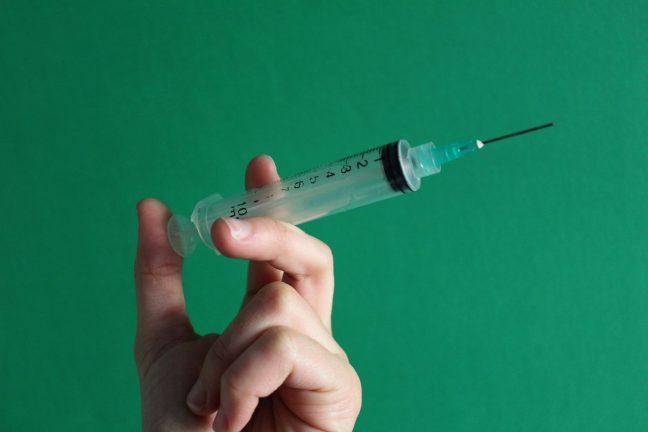Wisconsin will begin distributing COVID-19 vaccines by mid-December to primary health care workers and high-risk Wisconsinites, according to the governor.
Gov. Tony Evers addressed the public Thursday in a media briefing via livestream on YouTube to inform people of the state’s continued response to COVID-19. Evers said given the state’s increasing numbers and the lack of statewide response by the legislature, his administration is calling on the federal government to prioritize Wisconsin for vaccinations.
“The next few months will be critical for our state,” Evers said. “We have a lot of work to do, and we need a lot of resources and support to be able to do it.”
Evers said he requested nearly 50,000 doses of the vaccine from the U.S. Department of Health and Human Services, which they will distribute with the help of local health departments and pharmacies. The rest of the public that does not qualify for the mid-December vaccines can expect to receive their doses this coming spring.
As the state approaches 400,000 total cases, Evers also said the state will need at least $466 million to continue its current pandemic response for the first quarter of 2021.
“Although federal funds expire on December 31, the need does not,” Evers said.
In a letter sent to Wisconsin’s Congressional Delegation, Evers requested $466 million to cover COVID-19 related costs for the first quarter of 2021.
Evers said the state will use $10 million of the $466 million estimate for vaccine infrastructure readiness and $2 million for public health awareness and vaccine education programs.
Evers said he is “ready and willing” to help pass legislation “that will properly address and fund the needs and challenges of our state.”
At the media briefing, Secretary-designee of the Department of Health Services Andrea Palm said the state is at a crucial tipping point.
“Wisconsin is still at a critically high state-wide disease activity level,” Palm said. “Our hospitals are still very strained.”
The state expects a small number of vaccine doses in mid-December, which will be distributed to front-line health care providers and high-risk people, according to the media briefing.
Palm said the state has entered a partnership with pharmacies to provide vaccines on-site at nursing facilities.
On whether the vaccine will be mandated for these essential workers, Palm said decisions about the vaccine and health are “individual decisions and the decision of that particular employer.”
The state is awaiting news and information from the federal government on the arrival of more vaccine doses to protect all 450,000 front-line healthcare workers, Palm said.


